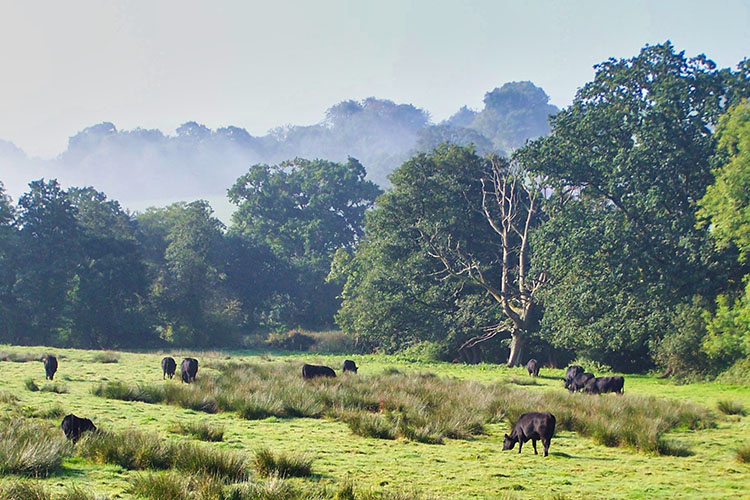After Brexit, the annual subsidies farmers receive under the EU common agricultural policy will be phased out and replaced by a new UK scheme – the Environmental Land Management Scheme (ELMS).
DEFRA have commissioned over 100 ‘tests and trials’ to help shape the new scheme and the East Devon National Landscape is one of 12 National Landscapes in England selected to feed into this process.
Our ‘Test and Trial’ will focus on the Umborne Valley, an area chosen for its density of smaller farm and land holdings and its rich mosaic of good quality, herb-rich meadows; a nationally scarce habitat.
Subject to COVID-19 restrictions, between now (Feb 2020) and March 2021, the project will explore how farmers might work together to achieve positive environmental outcomes, specific to the Devon climate and traditional ways of managing the land, and as a result access support under the proposed new scheme; promoted as ‘Providing Public Money for Public Goods’.
Public goods might include reducing flooding, water and air pollution or conserving rare habitats/species. It might also relate to conserving or enhancing carbon stored in the soil or perhaps in the form of more trees, or looking after any heritage, such as historic farm buildings or archaeological sites.
Farmers and other land owners involved in the project will share information about their land and business with the project team, work with them to test future land management objectives and payments based around delivering public goods, and feedback their experiences of this process through the project team to Defra’s policy unit.
The project team who will liaise with participants are Chris Woodruff and Pete Youngman (East Devon National Landscape) Roland Stonex and George Greenshields (FWAG-SW) and Annabel Douglas (Symonds and Sampson).
Farmers and other land managers who agree to join the project will gain an early insight into how farm and environmental support in England is changing, helping them to adjust their businesses to anticipate these changes. They will also play a significant role in shaping future schemes, helping to ensure they are practical and based on the needs of real businesses.
